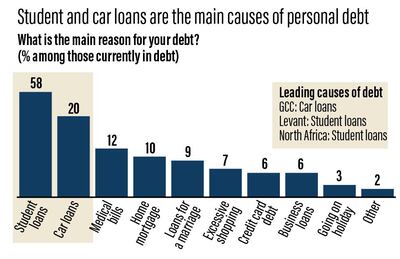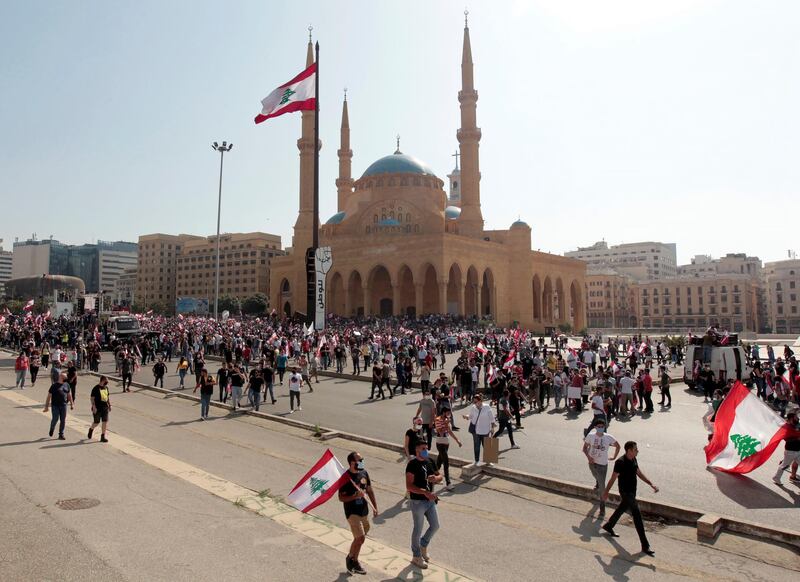More than one third of young Arabs are saddled with debt, the Arab Youth Survey 2020 has found.
At least 35 per cent have significant debt compared with just 15 per cent who took part in the survey in 2015.
The main reason for this was student loans, according to 26 per cent of those polled, followed by car loans (20 per cent), medical bills (12 per cent), home mortgage (10 per cent) and marriage loans (9 per cent).
Excessive shopping, credit cards, business loans and holidays are also a problem.
Car loans were the main reason for personal debt in the GCC, while student loans topped the polls in North Africa and the Levant.

Personal debt is most common among young people in Syria (73 per cent), Jordan (70 per cent), Palestine (65 per cent) and Iraq (59 per cent).
The level of personal borrowings is significantly lower in the UAE and Saudi Arabia, where it stands at 14 per cent. It was even lower in Kuwait where it stood at four per cent.
Ambareen Musa, founder and chief executive of financial comparison website Souqalmal.com, said it was crucial that young people educate themselves about the pitfalls of getting into debt.
“While education loans and car loans may seem like the obvious start to a young borrower's debt journey, mishandling finances can often lead them to falling deeper into debt, especially credit card debt which many view as quick and easy cash,” she said.

“Financial education is crucial in building awareness about debt, savings and money management among young borrowers.
“Be it through government led financial literacy initiatives, or financial education programmes run by schools, banks, local communities and other private organisations, equipping young people with the basics about managing their finances will help them make sound financial decisions in the future.”
When asked how they viewed their personal finances, more than one in three (34 per cent) said the situation was pretty bad or poor.
The levels of personal debt also varied throughout the regions with only eight in 100 young Arabs in the GCC saying their finances were poor or pretty bad, but that figure rose to 57 per cent among youths in the Levant.
Covid-19, unsurprisingly, has also had a detrimental effect on the finances of young Arabs across the 17 states that took part in the survey.
Almost one in three (30 per cent) said their level of household debt had increased because of the impact of coronavirus.
That figure was even higher in the Levant where it stood at 40 per cent, while it was lower in the GCC, with just 17 per cent saying their household debt had increased because of the virus.
Ms Musa said young people in the region were among those most badly hit financially by the pandemic.
“Many people have lost their primary source of income or have had it greatly reduced and this has naturally affected their ability to repay debts,” she said.
“Probably some of the worst affected are young jobseekers fresh out of university, especially those who have spent thousands on their education and now have limited to no access to job opportunities to start repaying their education loans.”
















